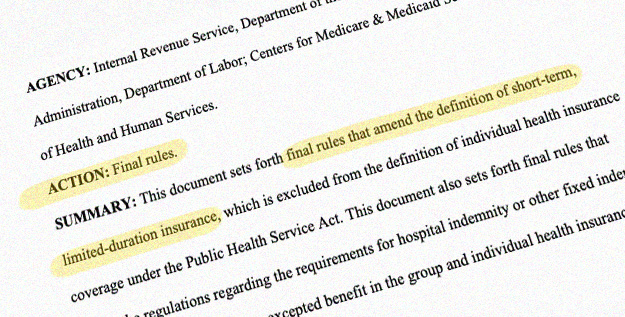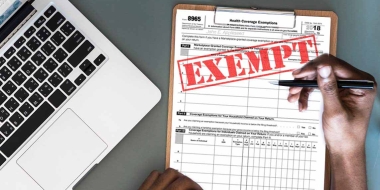I was laid off, and now do not have any income/insurance. What are my health insurance coverage options?
As discussed in more detail below, you’re likely eligible for Medicaid during the time that you’re without an income. And if you’re receiving unemployment compensation at any time during 2021, you’re eligible for a $0 premium silver plan in the marketplace, with robust cost-sharing reductions built into the coverage.
Losing your employer-sponsored insurance because you were laid off counts as a qualifying event, which gives you a special enrollment period that continues for 60 days from the date your old policy ended (even if you have the option to elect COBRA).
When you enroll in a plan through the marketplace, you can get premium subsidies if your income makes you eligible. And the subsidy rules are more generous in 2021, thanks to the American Rescue Plan (the 2021 COVID relief legislation). People who are receiving unemployment compensation at any time during 2021 are eligible for full premium subsidies (ie, the benchmark plan will be premium-free) and cost-sharing reductions.
And premium subsidies are much more robust in 2021 and 2022: There is no “subsidy cliff” in these two years, as the income cap (normally 400% of the poverty level) for subsidy eligibility has been eliminated. And the percentage of income that people have to pay for the benchmark plan is lower at all income levels (here’s how income is calculated under the ACA).
Since I was laid off, is Medicaid an option for me?
Medicaid may be an option for you, depending on where you live. If you’re in a state that has expanded Medicaid, coverage is available if your income is up to 138% of the poverty level. (Above that level, premium subsidies are available, ensuring that marketplace enrollees do not have to pay more than 8.5% of their income for the benchmark plan; this applies in both 2021 and 2022.) If your state has not expanded Medicaid, eligibility is significantly more restricted. (Here are Medicaid eligibility guidelines for each state.) Contact your state Medicaid office or the exchange to see if you could qualify for Medicaid until you get another job. But you can qualify for premium subsidies even with an income below the poverty level in those states, if you’re receiving any unemployment compensation in 2021.
Assuming you’re in a state that has expanded Medicaid, you’ll qualify for Medicaid during the time that you have no income. You can then switch to a private plan in the exchange (with subsidies if you’re eligible) or to an employer-sponsored plan if you get a job later in the year and your total annual income is going to end up being more than 138% of the poverty level. You’ll have the opportunity to make that coverage change if and when your income picks up again, but the state will not terminate your Medicaid coverage—unless you ask them to do so—until the COVID pandemic emergency period is over; this is due to federal rules that prevent coverage terminations for states receiving additional COVID-related Medicaid funding, which are states are receiving.
If you’re in the coverage gap because you’re in a state that hasn’t expanded Medicaid and your income is below the poverty level, you’ll have an opportunity to enroll in a subsidized health insurance plan through the exchange later in the year if you find a job that puts your income at or above the poverty level (assuming the job doesn’t come with health insurance and you need to purchase your own coverage). This was a rule change that took effect in 2015.
Normally, a change in income does not count as a qualifying event. But for people who are in states that haven’t expanded Medicaid and are ineligible for Medicaid or premium subsidies because their income is below the poverty level, HHS made an exception to the rule. As of 2015, people in that situation are allowed to enroll in a subsidized exchange plan as soon as their income reaches 100% of the poverty level, regardless of when that happens during the year. And again, if you’re receiving any unemployment compensation in 2021, you’ll be able to enroll in a silver plan in the marketplace with $0 monthly premiums plus cost-sharing reductions. This is true regardless of what your total annual income ends up being for the year.
Read more about avoiding or escaping the coverage gap.
Is short-term health insurance a good option if you've been laid off?
If you’re unable to afford an ACA-qualified plan while you’re between jobs, and you’re not in a state where Medicaid is available, you might want to consider a short-term health insurance plan.
These temporary health insurance plans are not regulated by the ACA, so they still use medical underwriting, don’t cover pre-existing conditions, impose caps on benefits, don’t have to cover preventive care, etc. But they’re better than nothing and they’re far less expensive than an ACA-qualified plan for people who aren’t subsidy-eligible (ie, anyone with income below the poverty level in a state that hasn’t expanded Medicaid).
But between Medicaid expansion and the provisions in the American Rescue Plan that provide larger and more widely available premium subsidies, and ensure people receiving unemployment compensation in 2021 can get a free silver plan, there should be very few people who have to turn to short-term health insurance. And the COVID-related enrollment window in 2021, which continued through August 15 in most states (but is still ongoing after that in a handful of states), provided an excellent opportunity for people with short-term health insurance to switch to ACA-compliant coverage and take advantage of the newly-available subsidies in the American Rescue Plan.
If you get coverage on your own – either Medicaid or a private plan – and then get a new job that provides health insurance benefits, you’ll be able to cancel the interim insurance and switch to your employer’s plan once you’re eligible for coverage. Coverage in the individual market is issued on a month-to-month basis; there are no annual contracts, so you can cancel at any time, although the only available termination date is typically the last day of the month.
Louise Norris is an individual health insurance broker who has been writing about health insurance and health reform since 2006. She has written dozens of opinions and educational pieces about the Affordable Care Act for healthinsurance.org.














